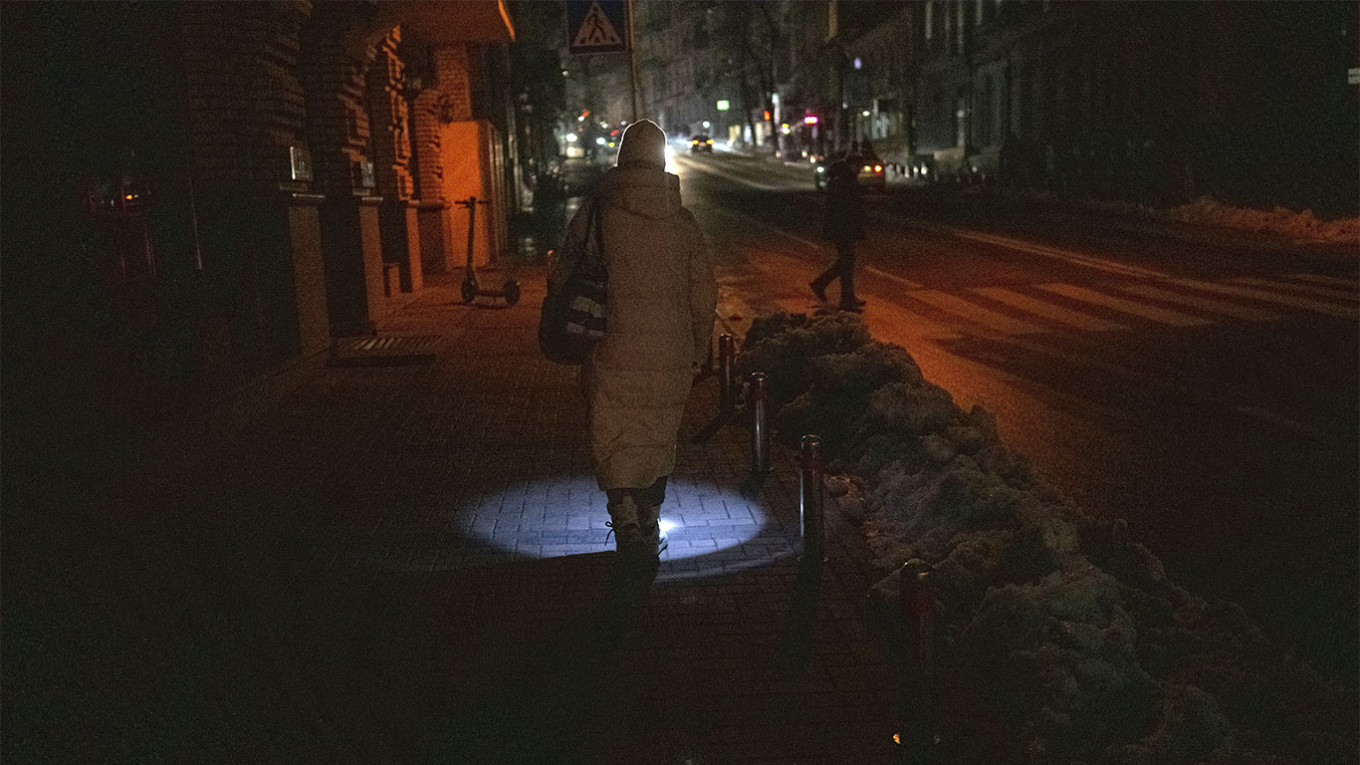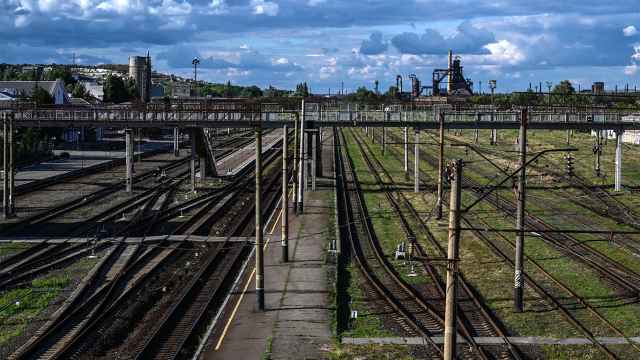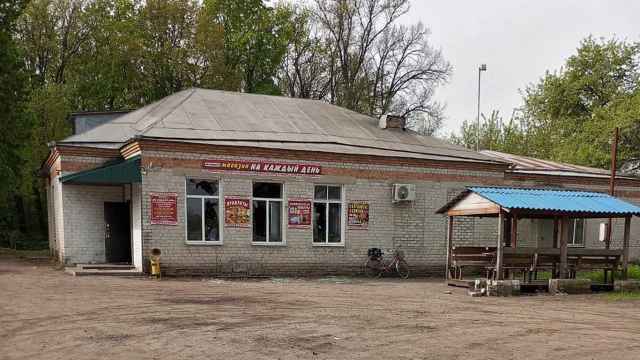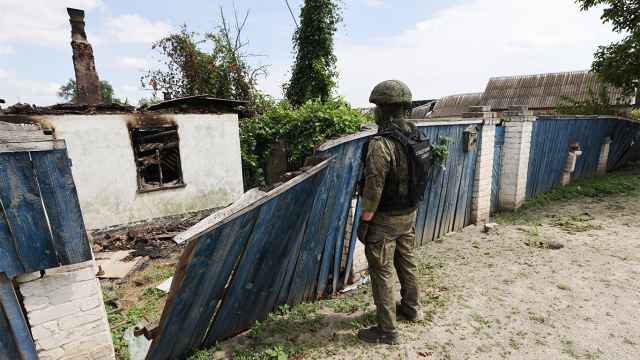Nearly half of Kyiv residents were still without electricity on Friday as engineers battled to restore services two days after Russian strikes hammered the country's energy grid.
Systematic and targeted Russian attacks for weeks have brought Ukraine's energy infrastructure to its knees as the country careens towards a freezing winter, spurring fears of a health crisis and a further exodus, nine months into the war.
Municipal workers struggled Friday to reconnect essential services such as heat and water as temperatures in Kyiv approached freezing and U.K. Foreign Secretary James Cleverly visited to announce a new aid package.
"Half of consumers are still without electricity," Mayor Vitali Klitschko said. "A third of houses in Kyiv already have heating and specialists continue to restore it."
"During the day, energy companies plan to reconnect electricity for all consumers on an alternating basis," he wrote on Telegram.
Lines of cars queued outside petrol stations in Kyiv on Friday to stock up, AFP journalists said. Mobile networks in some areas were still experiencing disruptions.
Nationwide, repair work was ongoing, said Volodymyr Kudrytskyi, head of national electricity operator Ukrenergo, but insisted that "the most difficult stage" had passed.
Ukrenergo said that producers were providing more than 70% of the need across the country.
'We live like this now'
Millions of Ukrainians have endured the cold without power since Russia fired dozens of missiles and launched drone attacks at water and electricity facilities on Wednesday.
"Yes, this is a difficult situation and yes, it can happen again. But Ukraine can cope," presidential adviser Mykhailo Podolyak said on television.
With gas for cooking and heating disconnected in her Kyiv apartment, Albina Bilogub told AFP that she and her children all sleep in the same room to stay warm.
"In our building, very few people have gas, so we go to the woman that I work for — I change her clothes because she is disabled — and we cook there," she said.
"This is our life. One sweater, a second, a third. We live like this now."
In northern Kyiv, a vet in blue scrubs and a face mask shone a light over an operating table in a darkened clinic as colleagues operated on an ailing dog late Thursday.
"We were in the middle of an operation and our lights turned off because a rocket fell not far away, so there was a power cut," said Oleksiy Yankovenko.
"I had to finish the operation under the flashlights," he added.
'Brutal attacks'
Ukraine's Western allies have denounced the Russian attacks on energy as a "war crime," coming in the wake of a string of military setbacks for Russia on the frontlines.
Moscow insists it targets only military-linked infrastructure and blamed Kyiv for the blackouts, saying Ukraine can end the suffering by agreeing to Russian demands.
Britain's foreign minister announced new aid for Ukraine during his visit to Kyiv, including ambulances and support for victims of sexual violence by Russian soldiers.
"As winter sets in, Russia is continuing to try and break Ukrainian resolve through its brutal attacks on civilians, hospitals and energy infrastructure," Cleverly said.
"Russia will fail," he said, vowing U.K. support "will continue for as long as it takes."
The attacks on Ukraine's grid are Russia's latest strategy designed to force Ukrainian capitulation after Moscow's forces failed to topple the government and capture Kyiv nine months after launching their invasion.
Although they have captured swathes of territory in the south and east and the Kremlin claimed to annex four regions, Ukrainian troops are clawing back territory.
Russian forces have shelled the southern city of Kherson, from which they retreated earlier this month in their latest setback. The Ukrainian presidency said 11 people were killed and nearly 50 injured in the Kherson region on Thursday.
A Message from The Moscow Times:
Dear readers,
We are facing unprecedented challenges. Russia's Prosecutor General's Office has designated The Moscow Times as an "undesirable" organization, criminalizing our work and putting our staff at risk of prosecution. This follows our earlier unjust labeling as a "foreign agent."
These actions are direct attempts to silence independent journalism in Russia. The authorities claim our work "discredits the decisions of the Russian leadership." We see things differently: we strive to provide accurate, unbiased reporting on Russia.
We, the journalists of The Moscow Times, refuse to be silenced. But to continue our work, we need your help.
Your support, no matter how small, makes a world of difference. If you can, please support us monthly starting from just $2. It's quick to set up, and every contribution makes a significant impact.
By supporting The Moscow Times, you're defending open, independent journalism in the face of repression. Thank you for standing with us.
Remind me later.






